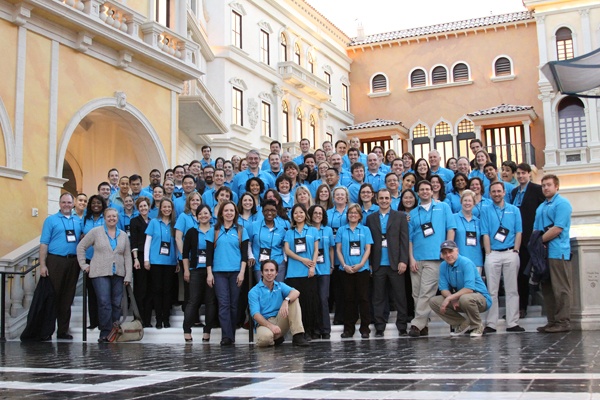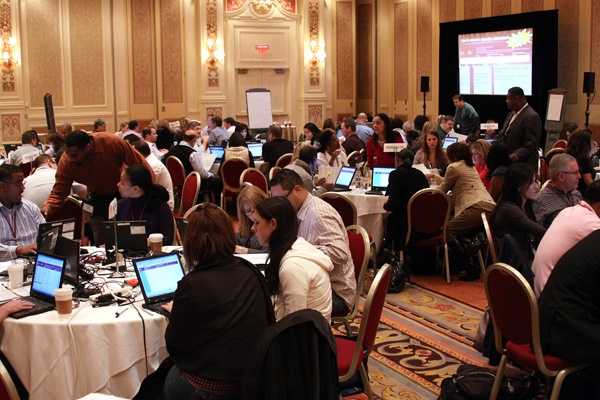
In February 2010 Capgemini engaged with a pharmaceutical company to help organize their entire US sales force to prepare for the launch of a new drug. The final participant count for the session was 2,500 people and the facilitation team consisted of 77 knowledge workers and 22 facilitators. Here are a few things we learned about facilitating mega-events.
Parallel is the way to go. Divide the group into logical chunks and run each one independently in parallel. This gives each group the ability to adjust the time they need to do their work. Too much structure will ensure things get out of whack.
Self-capture when possible. The cost of properly supporting this many people is very daunting for the consumer, so in order to keep the costs down we had to limit the facilitation team in each room to one facilitator, one PF and two KWs. This worked because we had the participants do as much of the capture of their own sales plans as possible.
Keep it simple and centralized. One of the most memorable aspects of this session was the complete implosion of an online tool that had been developed by a third-party vendor. Capgemini’s response and subsequent implementation of a simple Excel back-up plan really saved the day in this instance. This reminds us all to keep it simple, especially when dealing with large groups. In addition, another thing that helped us manage such a large group was to centrally project all assignments and inputs and have the facilitator manage communicating them to the groups in each room.
Know your partners and over-communicate with them. Mega-events come with many cooks in the kitchen, and working well with the event planners and production companies that are involved is very important. Capgemini’s role in the planning of this event became providing structured communication and planning among the vendors in order to ensure the session was successful.
Leave lots of time for questions. Quadruple the amount of time you think you’ll need to answer the questions the facilitation team will have. We are all very inquisitive people by nature and are used to having a high-level of knowledge about the events that we do. When the information is concentrated in just a couple of ‘lead’ people there needs to be a lot of time set aside to go over in detail the proceedings and procedures for the event. It’s only fair to the teams in each room to spend a lot of time on this.
I hope this was interesting. As you no doubt noticed there is nothing earth-shatteringly brilliant here. Facilitating huge events is more about getting the balance or formula right. I would love to hear about any tips and tricks that others have used to facilitate mega-events.
